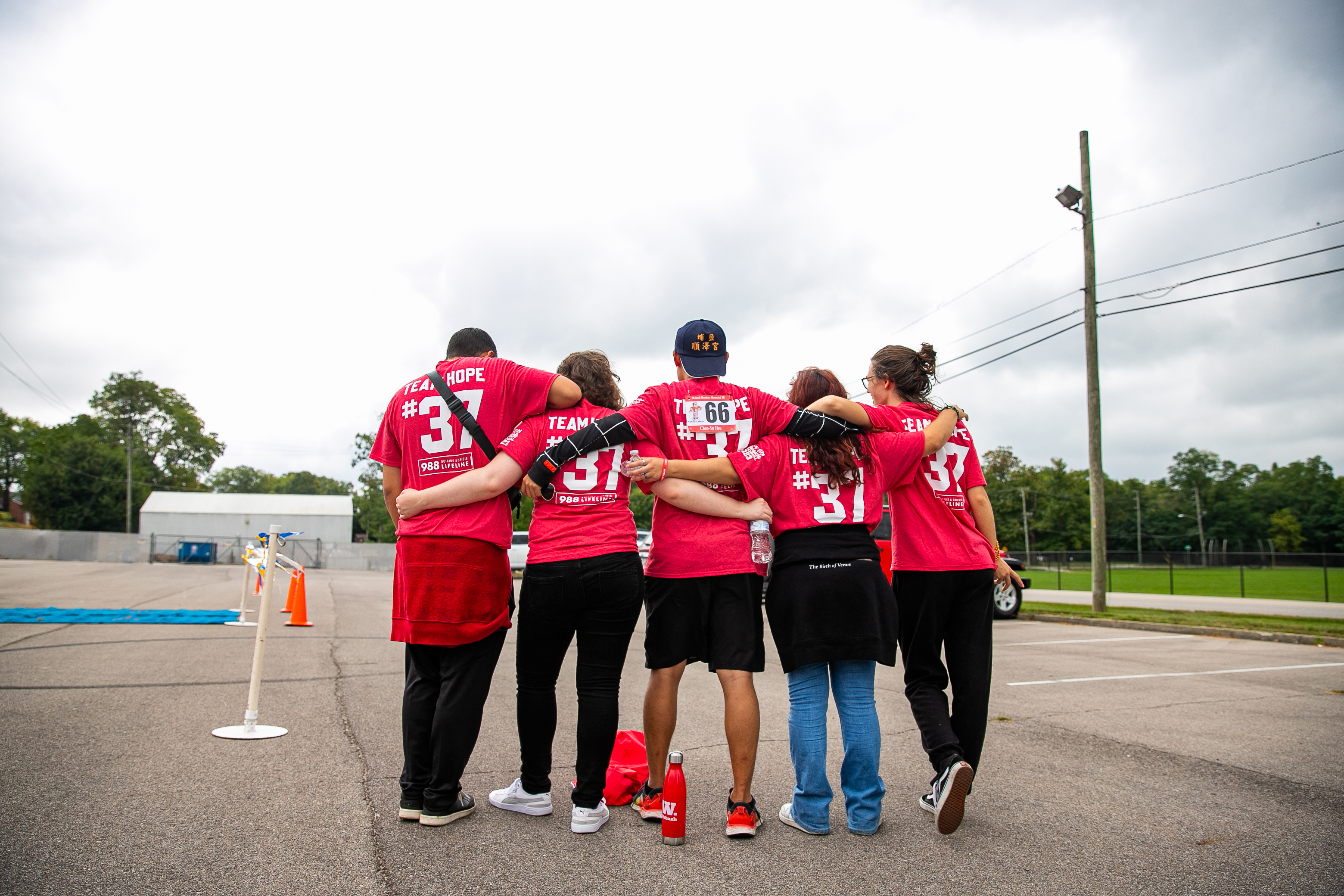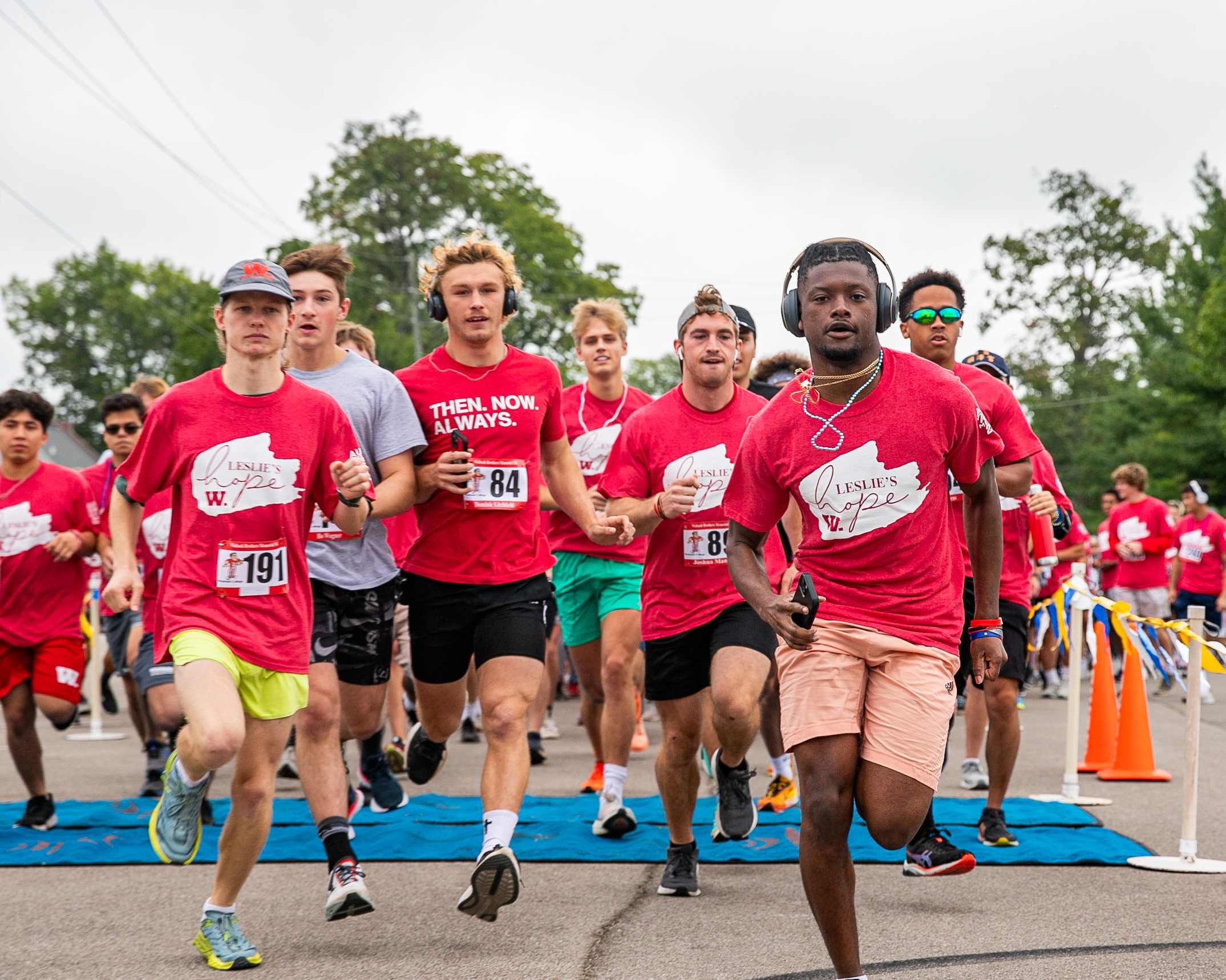Starting college can stir up a mix of emotions about what’s to come. For Christopher Royal ’26, the first two months came with extreme homesickness.
“After the initial excitement of arriving to school died down, reality started to set in,” recalled Royal from Bloomfield, Indiana. “I was asking myself, ‘What did you get yourself into?’ I wanted to give up and go home.”
Royal knew he couldn’t get through the remainder of the semester—let alone his next four years at Wabash—if his mental health didn’t improve.

After receiving some encouragement from his Phi Kappa Psi brothers, Royal decided to contact Wabash’s Counseling Center for help.
He admits to being nervous going into his first counseling session, but said that meeting with Counselor Jamie Douglas gave him the confidence to push forward.
“She put it all in perspective for me,” he said. “It was mid-September and after hearing my story, she said, ‘You’re the fourth freshman I’ve had in my office today with that exact same issue.’
“Before, I really thought nobody else seems to be struggling like I was,” Royal said. “That showed me I wasn’t alone.”
Since going to the Counseling Center, Royal learned and now practices healthy coping mechanisms to deal with stress and uncomfortable emotions.
“I feel like I have gotten better at decision-making and looking at something at face value,” said Royal, who now serves as the secretary of Student Senate’s Mental Health Concerns Committee. “Douglas taught me how to not get so worked up over the small, little things. There will always be little things, that sometimes feel like they just pile up. What’s most important is how you react.”
Counseling Services
Royal’s story of struggling with mental health isn’t an isolated one.
More than 60% of college students nationwide meet the criteria for at least one mental health problem, according to the latest Healthy Minds survey. Healthy Minds is a survey administered by the University of Michigan that examines student mental health, utilization of mental health services, and several other topics.
According to Wabash’s Fall 2022 report, 15% of the College’s student participants surveyed reported moderate symptoms of depression; 12% reported moderate feelings of anxiety; and 12% reported experiencing suicidal ideation.
“We don’t all walk around with our stories on our faces,” said Douglas, Counseling Center director. “Most of us are carrying a lot of hidden burden that we don’t advertise. That doesn’t mean we’re not suffering.
“Going to college, entering adulthood is not an easy transition in life, and sometimes our guys need the extra support to help them emotionally regulate,” she said. “Just talking it out with a counselor, taking those emotions out of the shadows, can make all the difference in the world.”
On average, 16% of the student population—or roughly 136 students—every year use services provided by the Counseling Center, which include in-person and Zoom therapy with one of three licensed therapists on campus.
The professional, confidential counseling is free to students when classes are in session and there is no limit on appointments.
When a student contacts the Counseling Center for an appointment, Douglas said, often times counselors can see them that same day or in a couple of days.
“It is a quick turn-around time,” Douglas explained. “That is something that makes Wabash very special because in the real world, if they call any other place, sometimes they could be waiting for months to see somebody. They never have to wait even a week here.”
‘Stepping Up’
Douglas has noticed in the last several years that students have “stepped up” as mental health advocates, often being seen proudly sporting red T-shirts that read, “Men’s Mental Health Matters.”

More students have joined the Mental Health Concerns Committee and helped organize awareness events, like campfire congregation, a frequent meeting near the Senior Bench where students can come together to talk and “unwind their minds from the grind everyone faces at Wabash,” while enjoying snacks.
“If it’s a grassroots effort, it’s more likely to be successful,” Douglas said. “I can stand on my pulpit and preach all day long about the importance of mental health, but nobody’s going to hear me the same way they’re going to hear their roommate.
“Sometimes these young men get the idea that they’re the only ones suffering because they don’t see it,” she said. “When their peers are brave enough to share their story, to say it’s OK to not be OK, to encourage them to come talk to us at the Counseling Center, that means more.”
Bennett Strain ’26, Mental Health Concerns Committee chairman, echoed Douglas’ message.
Like Royal, Strain went to the Counseling Center last year after one of his friends shared their experiences and how it helped him break bad habits and improve his overall mental health.
“I didn’t go until I heard that someone I knew, someone I looked up to, was going to get the help they needed,” said Strain from Greenwood, Indiana. “That broke the stigma for me.
“Students need to understand that going to the Counseling Center, or taking advantage of any of the other services on campus is not a sign of weakness. It shows strength,” he continued. “And you don’t need to be struggling with depression or anxiety specifically to go. If you are feeling overwhelmed, that’s a totally valid reason to go—and that’s what they want. They are here for you.”
Additional Resources
There are a lot other opportunities and services available to Wabash students to support the eight dimensions of wellness: emotional, physical, occupational, social, spiritual, intellectual, environmental, and financial.
Some events, organized by Tristen Abbott, Wabash’s student development and wellness coordinator, include: Mindfulness Based Stress Reduction (MBSR) workshops; NARCAN training; and QPR (question, persuade, and refer) suicide prevention training, offered twice per semester to students, staff, and faculty.
Abbott also works closely with a number of clubs, like the Public Health Organization, and has a team of student workers known as Peer Health Educators who help coordinate wellness events. The team recently hosted a Wabash Brothers Memorial 5K Walk and Run in honor of Austin Weirich ’18 and all other Wabash students who have died by suicide over the years.
“My job is to be a resource for students,” said Abbott, who joined Wabash staff in January thanks to grant support by the Substance Abuse and Mental Health Services Administration (SAMHSA).

“A big part of my role is navigating and publicizing not only what resources we do have that students need to know about, but also what more we could be doing to support their overall well-being,” she said. “The more we offer services and host these events, the more normalized and less stigmatized these conversations become.”
Royal is proud of how far he’s come with his own mental health battles and said he’s thankful to be a part of a culture at Wabash that prioritizes students’ overall well-being. But, he said, more can always be done to further help support his peers.
“If I can help one person feel better or become more aware of the resources available to them at Wabash,” Royal said, “then I feel like I’ve done a good thing, and it’ll all be worth it.”
Tips from the Wabash Counseling Center for a Successful Semester: